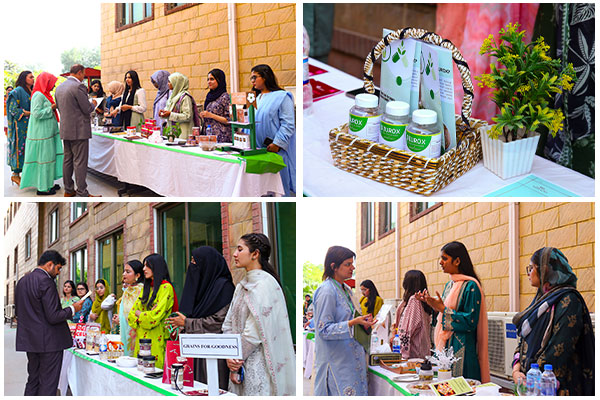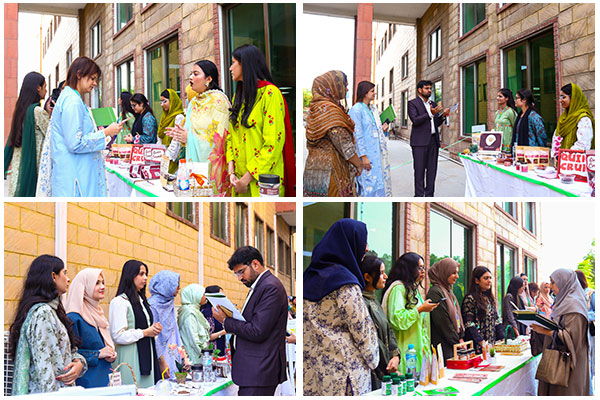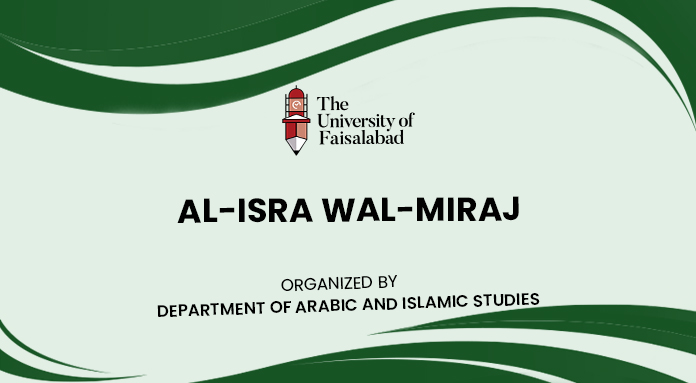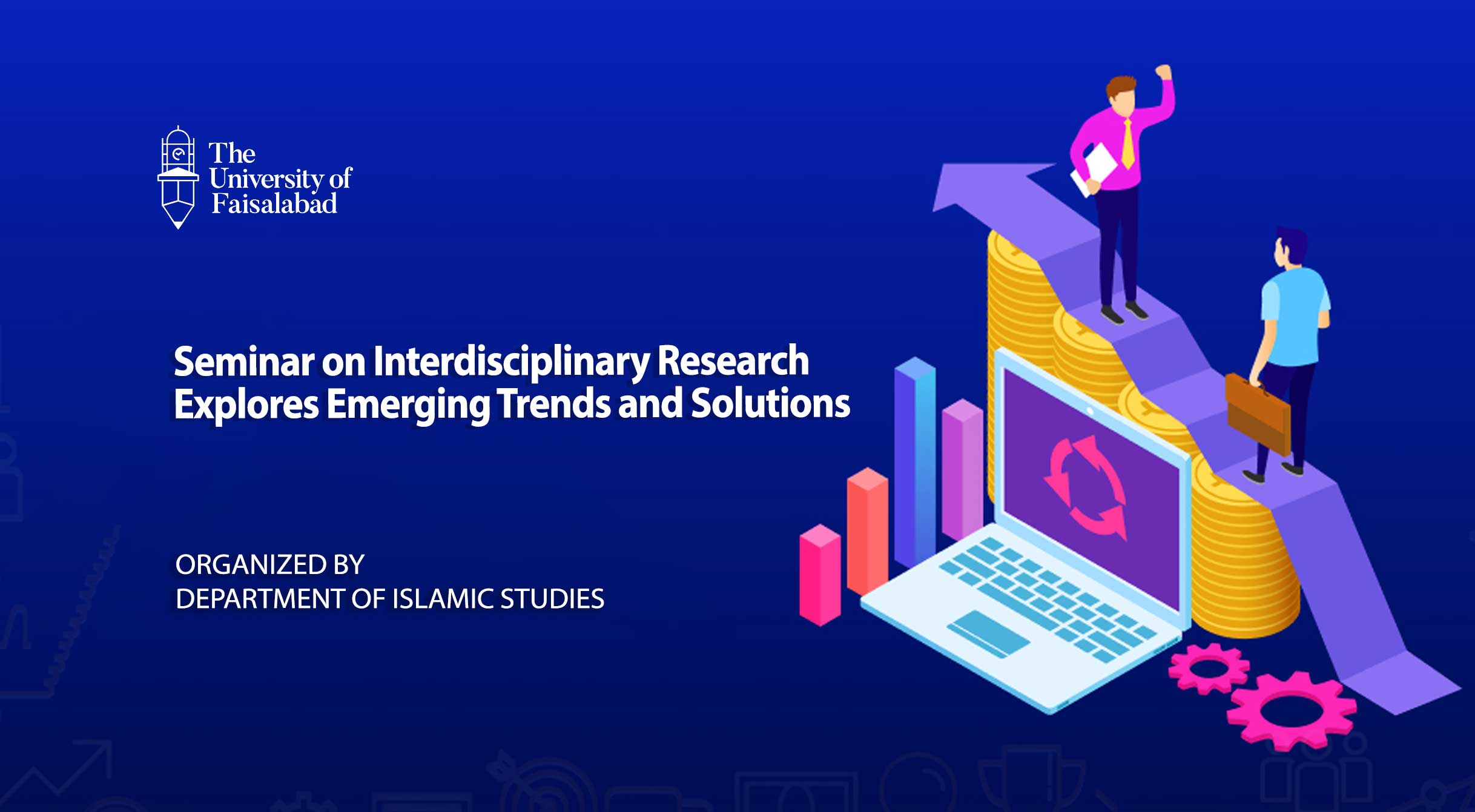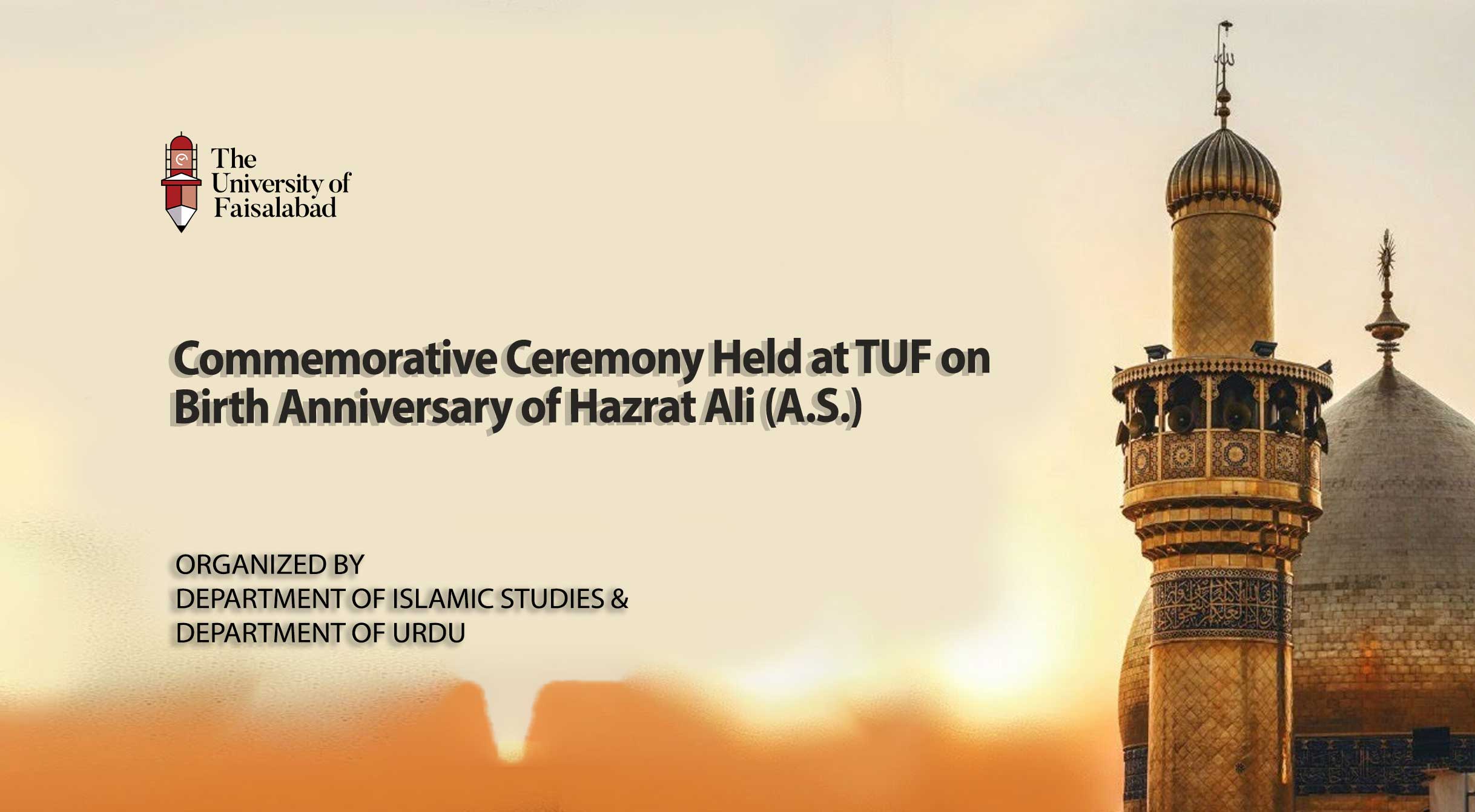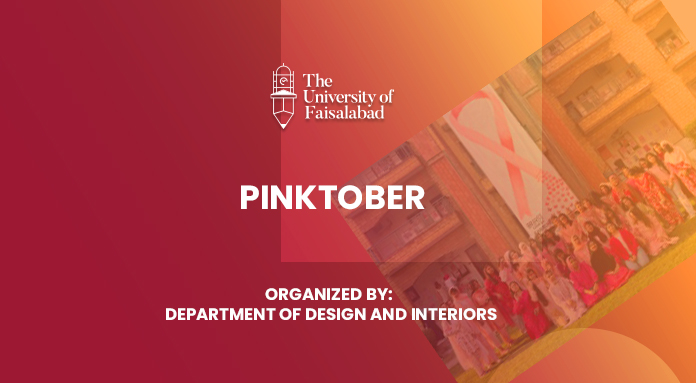
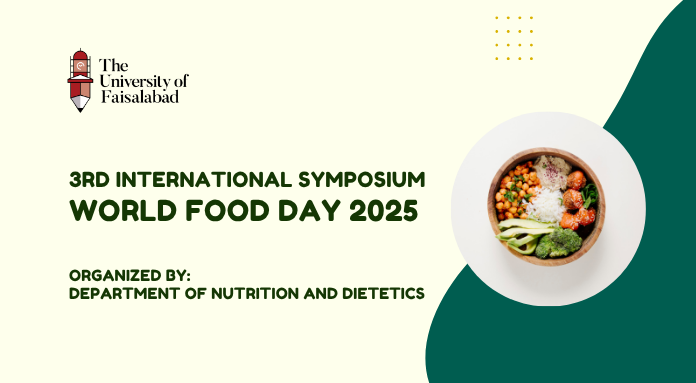
Nutrition Society
Good Health and Well-being
3rd International Symposium on World Food Day
The Department of Nutrition and Dietetics, TUF organized the 3rd International Symposium on World Food Day 2025, with the theme “Hands in Hand: Foods for Better Life, for Better Future.” The event served as a platform for academic and professional exchange, bringing attention to global challenges in food security, sustainable diets, innovation in nutrition science, and equitable access to healthy food systems. It was attended by a distinguished gathering of national and international experts, researchers, and regulatory professionals dedicated to shaping the future of food and nutrition.
Dr. Amber Tehseen, acting Head of the Department of Nutrition and Dietetics, opened the event with welcoming remarks to guest speakers, the executive committee, faculty, and students. She emphasized the significance of World Food Day, underscoring its global role in promoting food security, nutrition, and sustainable development.
The symposium brought together an exceptional assembly of academic and industry leaders whose insights significantly enriched the discussions. Prof Dr Faqir Muhammad Anjum, the Chief Guest and CEO of the Islamic Food and Nutrition Council of America (IFANCA) and Pakistan Halal Apex Pvt. Ltd., delivered a keynote address emphasizing the importance of food technology, policy innovation, and halal certification in improving public health and industry standards across Pakistan. International contributors Prof Dr Aamir Shehzad from UniLaSalle, France, and Dr Munawar Abbas from APC Microbiome Ireland joined the event online, offering global perspectives on food system collaboration and microbiome science, respectively.
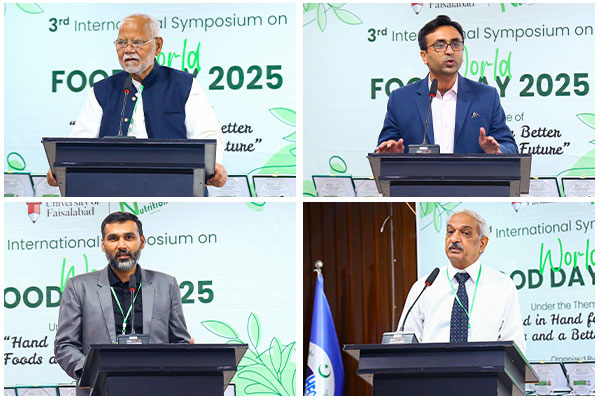
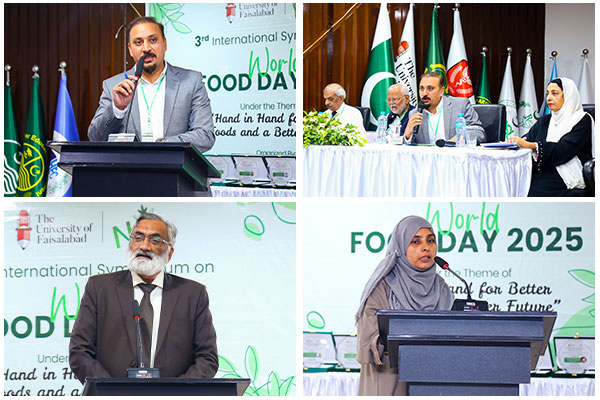
National scholars and professionals also played a central role in advancing the symposium’s dialogue. Dr. Nazir Ahmad, Chairperson, Department of Nutritional Sciences, GC University Faisalabad, introduced the symposium’s theme and stressed the significance of functional foods in disease prevention and long-term health. Dr Muhammad Kamran Khan, Associate Professor and ORIC Manager at GCU Faisalabad, provided insights into research commercialization and the need for academia-industry partnerships. Dr Abdul Momin from NUST Islamabad focused on sustainable dietary practices and their role in both public health and environmental preservation. Prof Dr Amna Sehar from NIFSAT, University of Agriculture Faisalabad, explored food system innovation and the integration of technology in nutrition science. Dr Mahwish from the University of Sargodha addressed the intersection of community nutrition, equity, and scientific advancement, while Dr Sakhawat Ali, an academic and research scholar, reflected on current challenges in nutritional sciences and opportunities for policy-driven reform.
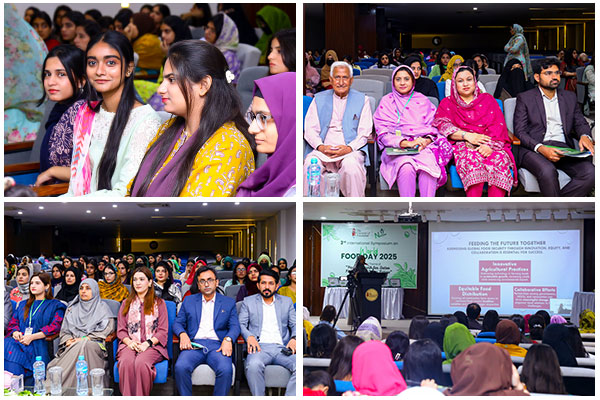
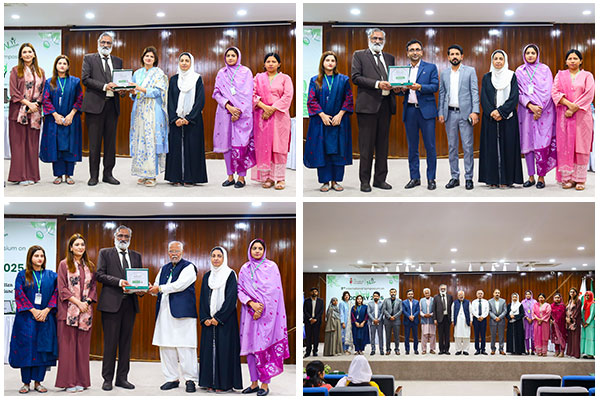
Representatives from the Punjab Food Authority, Mr Imtiaz Hussain (Additional Director Operations) and Mr Asad Ali (Deputy Director Operations), contributed regulatory and operational perspectives on food safety, compliance, and public awareness. Their participation highlighted the essential role of government oversight in achieving national nutrition goals.
The scientific sessions featured engaging and timely presentations covering microbiome health, functional foods, sustainable diets, food innovation, and policy development. Collectively, these discussions emphasized the importance of multi-sector collaboration in addressing food-related challenges and promoting public health outcomes. A formal souvenir distribution ceremony followed the sessions, where all guest speakers and contributors were presented with tokens of appreciation in recognition of their valuable input by Prof Dr Aman Ullah Malik, Rector TUF.
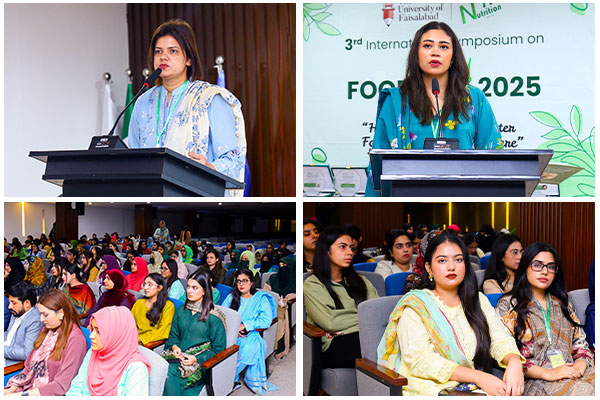
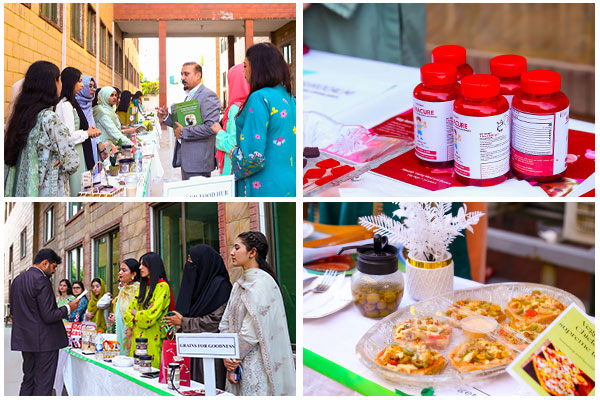
The event concluded with a vote of thanks delivered by Prof Dr Aman Ullah Malik, who acknowledged the dedication of the organizing team, participating faculty, guest speakers, and students whose efforts made the symposium a success.
Overall, the 3rd International Symposium on World Food Day 2025 served as an impactful event fostering dialogue, research exchange, and collective commitment to building a healthier, more sustainable future through informed food and nutrition practices.
